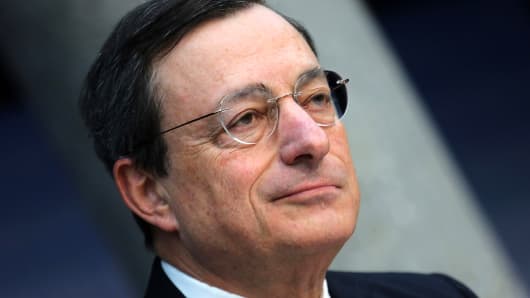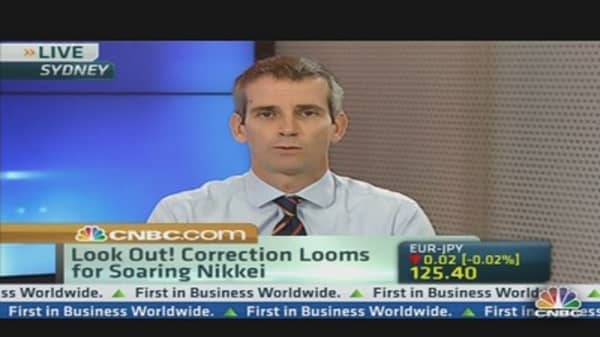The European Central Bank (ECB) President Mario Draghi's concerns over the impact of a strong euro on a weak euro zone economy raise the prospect of monetary easing to dent the currency's appeal, an analyst told CNBC.
The ECB chief said Monday: "while the exchange rate was not a policy target it was important to growth," adding that economic indicators signaled further weakness in the euro zone.
His comments were seen as negative for the single currency, which has fallen almost 3 percent from a 15-month high of $1.37 hit earlier this month, as European officials step up the rhetoric on a strong euro.
"The ECB has held rates at 0.75 percent and clearly it could pick up its own quantitative easing process. They (policy makers) would like to see a bit of downside (in the euro) from the current levels," said Martin Lakos, division director at Macquarie Private Wealth in Sydney.
"So we could see some more quantitative easing and even a cut in interest rates. We are seeing weak growth in the euro zone and they want to kick start that and a weaker euro would help," Lakos told CNBC Asia's "Squawk Box."
Interest rates in the euro zone have been steady since July 2012.
Talk of a "currency war" has gained momentum since the yen started to fall in November amid expectations of aggressive monetary easing from Japan. But at the Group of 20 nations meeting in Moscow over the weekend such talk was dismissed with the group declaring they would "refrain from competitive devaluation."
"It's interesting that we've had a lot of talk from the G-20 about countries not using their currencies for competitive purposes," Lakos said. "But let's face it, at the end of the day, with weak economic growth they all want their currencies to weaken and not all of them can do that."





